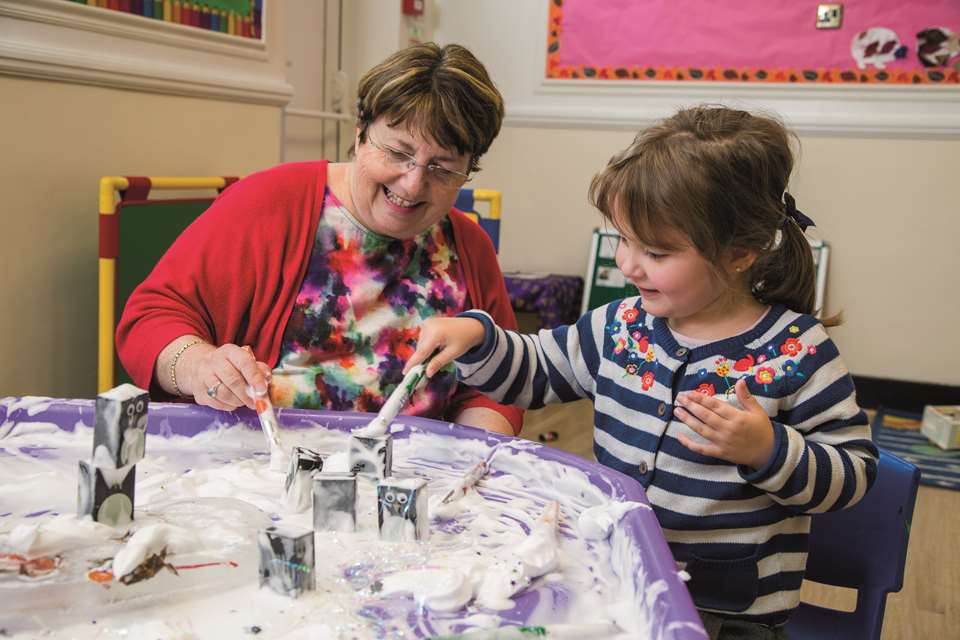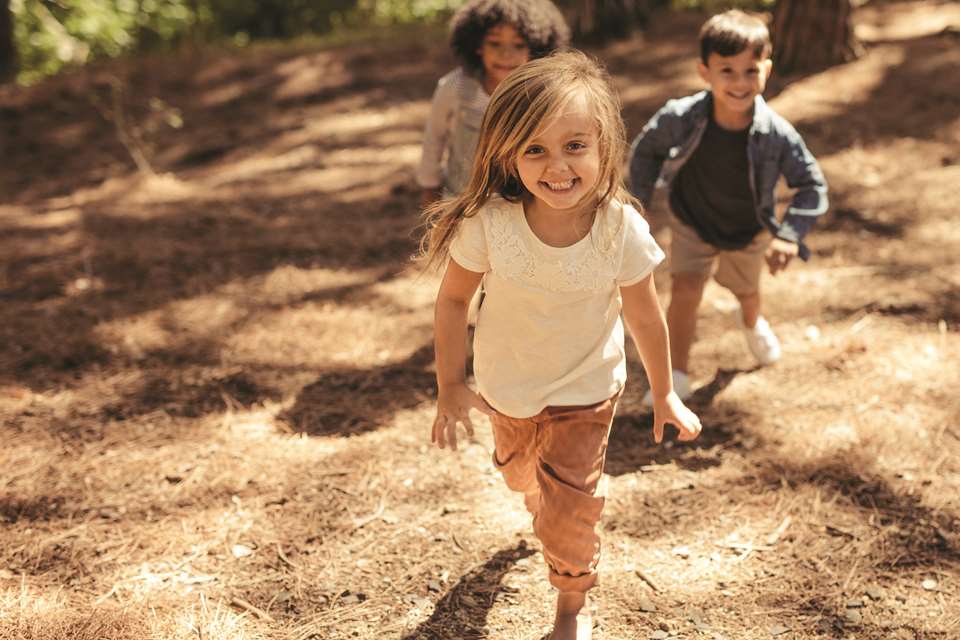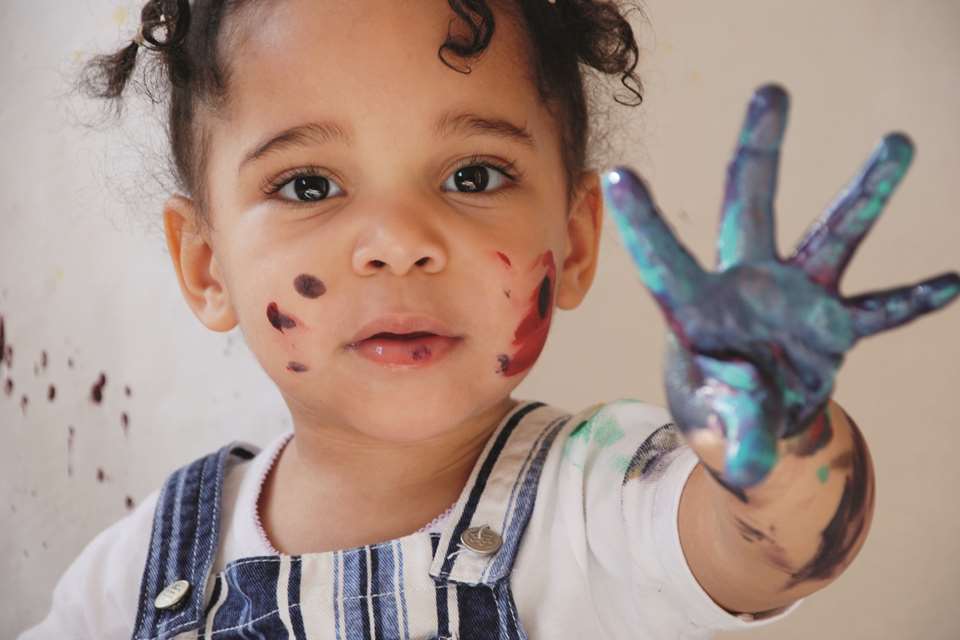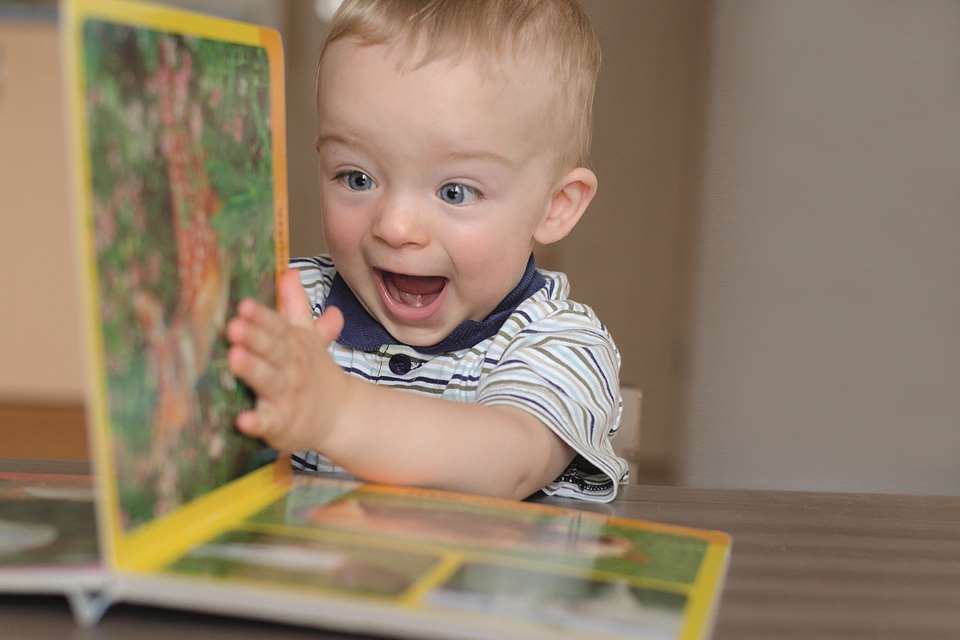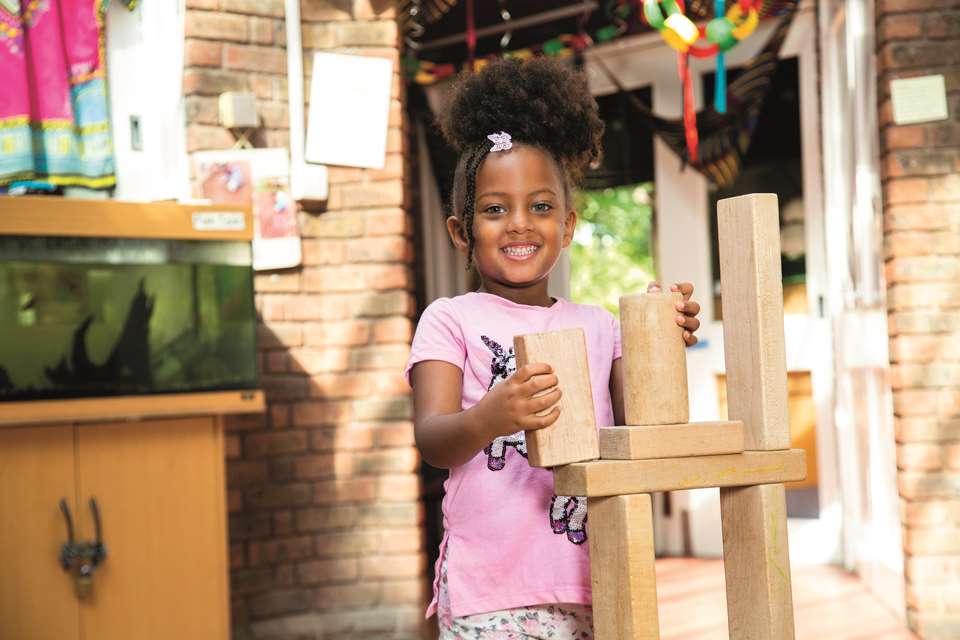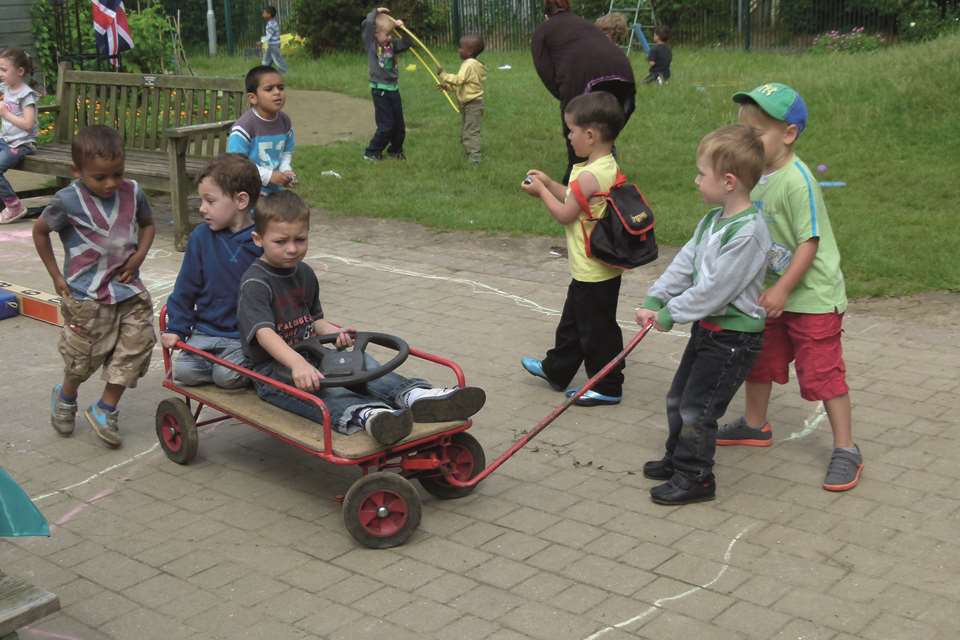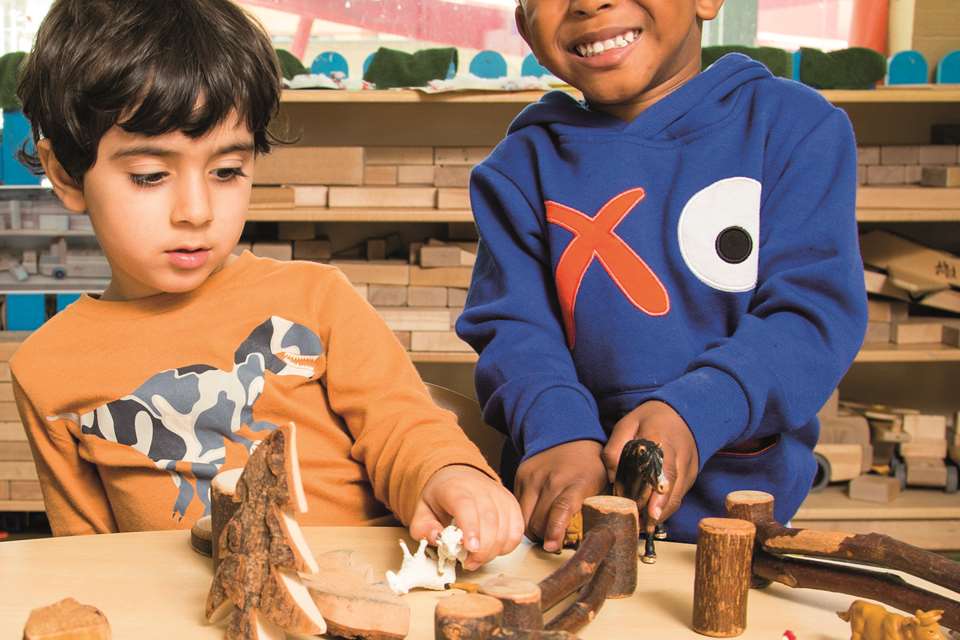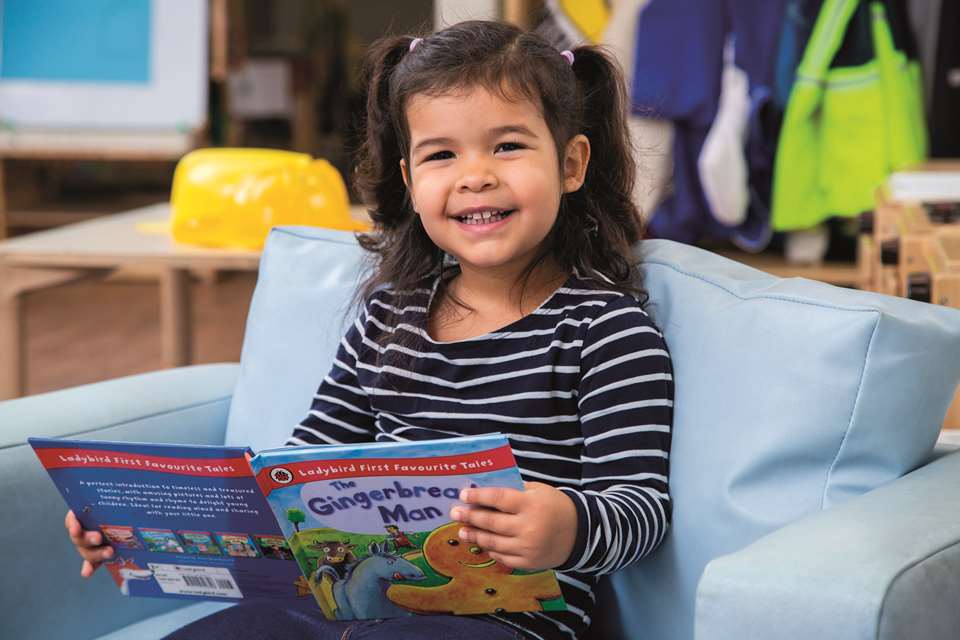Nursery Equipment: Books - Good reads
By Charlotte Goddard
Tuesday, June 2, 2020
These eight recommended titles can help practitioners link communication and language with all areas of the EYFS. By Charlotte Goddard
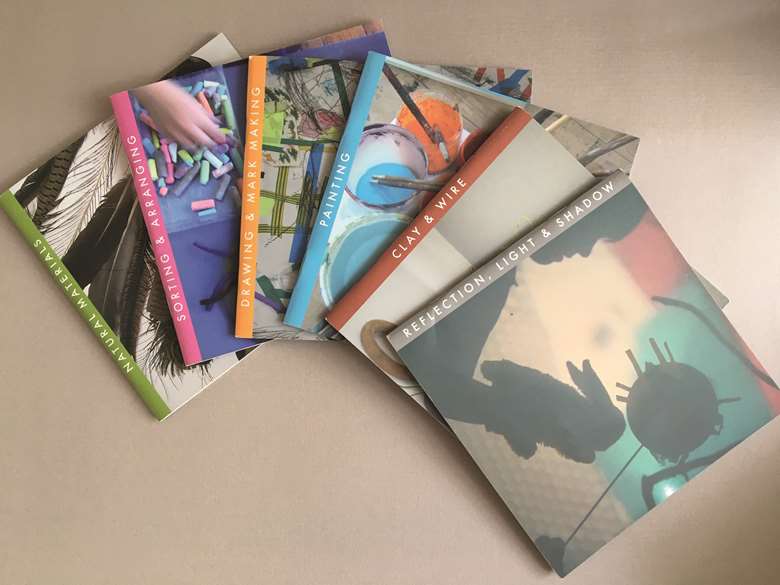
 The Early Years Movement Handbook: A Principles-Based Approach to Supporting Young Children’s Physical Development, Health and Wellbeing by Lala Manners (Jessica Kingsley Publishers, £16.99)
The Early Years Movement Handbook: A Principles-Based Approach to Supporting Young Children’s Physical Development, Health and Wellbeing by Lala Manners (Jessica Kingsley Publishers, £16.99)
Introducing the eight core principles of movement-based learning, this book explains why movement plays such a critical role in children’s development, and how physical activity underpins the skills that support effective communication and school-readiness.
Principle Five, for example, looks at how group work can support communication and language. The book also suggests practical ways children can be supported to become confident and competent movers and effective communicators.
 50 Fantastic Ideas for Exploring Number by Alison Hutchison (Featherstone, £10.99)
50 Fantastic Ideas for Exploring Number by Alison Hutchison (Featherstone, £10.99)
Explore new ideas that will encourage children to explore and investigate number concepts without adult support, asking questions and making discoveries. The activities are designed to allow children to have lots of fun while playing collaboratively in ways that provoke thinking, talking and sharing ideas.
Each activity lists the resources needed, gives health and safety tips, and ideas for extending the activity.
 The Inspired Child: A Creative Journey by Liz Buckler (The Inspired Child, £19.99)
The Inspired Child: A Creative Journey by Liz Buckler (The Inspired Child, £19.99)
A set of six booklets which focus on engaging children in creative activities that are empowering and tap into the child’s own enthusiasm for learning.
They cover a range of art techniques and resources, which can stimulate communication and creativity without being too prescriptive.
 Developing Early Maths Through Story: Step-By-Step Advice for Using Storytelling as a Springboard for Maths Activities by Marion Leeper (Practical Pre-School Books, £18.99)
Developing Early Maths Through Story: Step-By-Step Advice for Using Storytelling as a Springboard for Maths Activities by Marion Leeper (Practical Pre-School Books, £18.99)
Using stories as a way into mathematics can be empowering for children and practitioners alike, removing some of the anxiety often associated with mathematics and encouraging rich talk and purposeful play.
Fourteen chapters focus on different traditional stories and folktales from around the world, and give the outline of the story, EYFS learning objectives, the resources needed, the scope for outdoor activities and suggestions for using technology.
 Create, Perform, Teach! An Early Years Practitioner’s Guide to Developing Your Creativity and Performance Skills by Nikky Smedley(Jessica Kingsley Publishers, £14.99)
Create, Perform, Teach! An Early Years Practitioner’s Guide to Developing Your Creativity and Performance Skills by Nikky Smedley(Jessica Kingsley Publishers, £14.99)
This practical guide includes simple activities that help early years practitioners to develop their creativity and performance skills.
Giving advice on using storytelling, role play, sensory play, puppetry, non-verbal play and photography, the book reveals how each method can be used to support key developmental aspects, such as language and communication, physical development and movement, and managing feelings.
 Can I Go And Play Now? Rethinking the Early Years by Greg Bottrill (SAGE Publications, £19.99)
Can I Go And Play Now? Rethinking the Early Years by Greg Bottrill (SAGE Publications, £19.99)
Greg Bottrill explores how continuous provision enables children’s development and learning. He introduces the ‘3Ms’ – making conversation, mark-making and mathematics.
The book suggests ways to make sure a setting’s provision prompts and encourages chatting, sustained thinking and collaborative play, ensuring language development is at the heart of every area.
Let’s Talk About Maths! Exciting Ideas to Develop Children’s Language and Love of Mathematics from an Early Age by Michael Jones and Judith Twani (Lawrence Educational, £15)
Children’s language development and understanding of maths go hand-in-hand, so the best way to nurture their curiosity is to share meaningful conversations with them. This book provides more than 40 fun and practical ideas to support children’s growing understanding of all aspects of maths through real-life situations.
 Starting Inquiry-Based Science in the Early Years: Look, Talk, Think and Do by Sue Dale Tunnicliffe (Routledge, £25.99)
Starting Inquiry-Based Science in the Early Years: Look, Talk, Think and Do by Sue Dale Tunnicliffe (Routledge, £25.99)
A child’s cognitive development is affected by the nature, context and forms of language they are exposed to. This book points out how language development feeds into learning about science and vice versa. The author gives questions that practitioners can ask children in order to spark their learning journey and lists of vocabulary that can be introduced as part of activities, making links with literacy and numeracy.
Download Now

